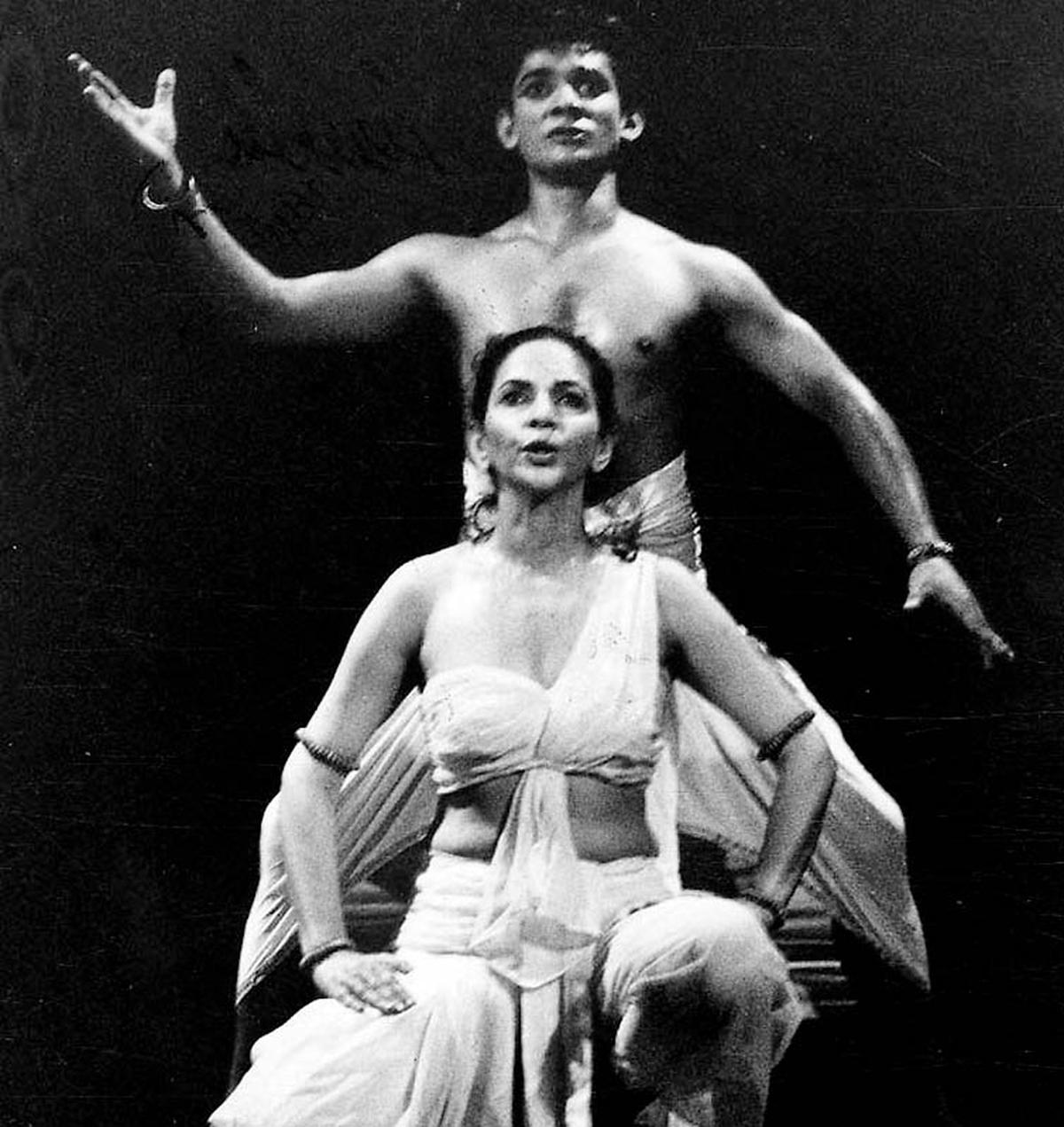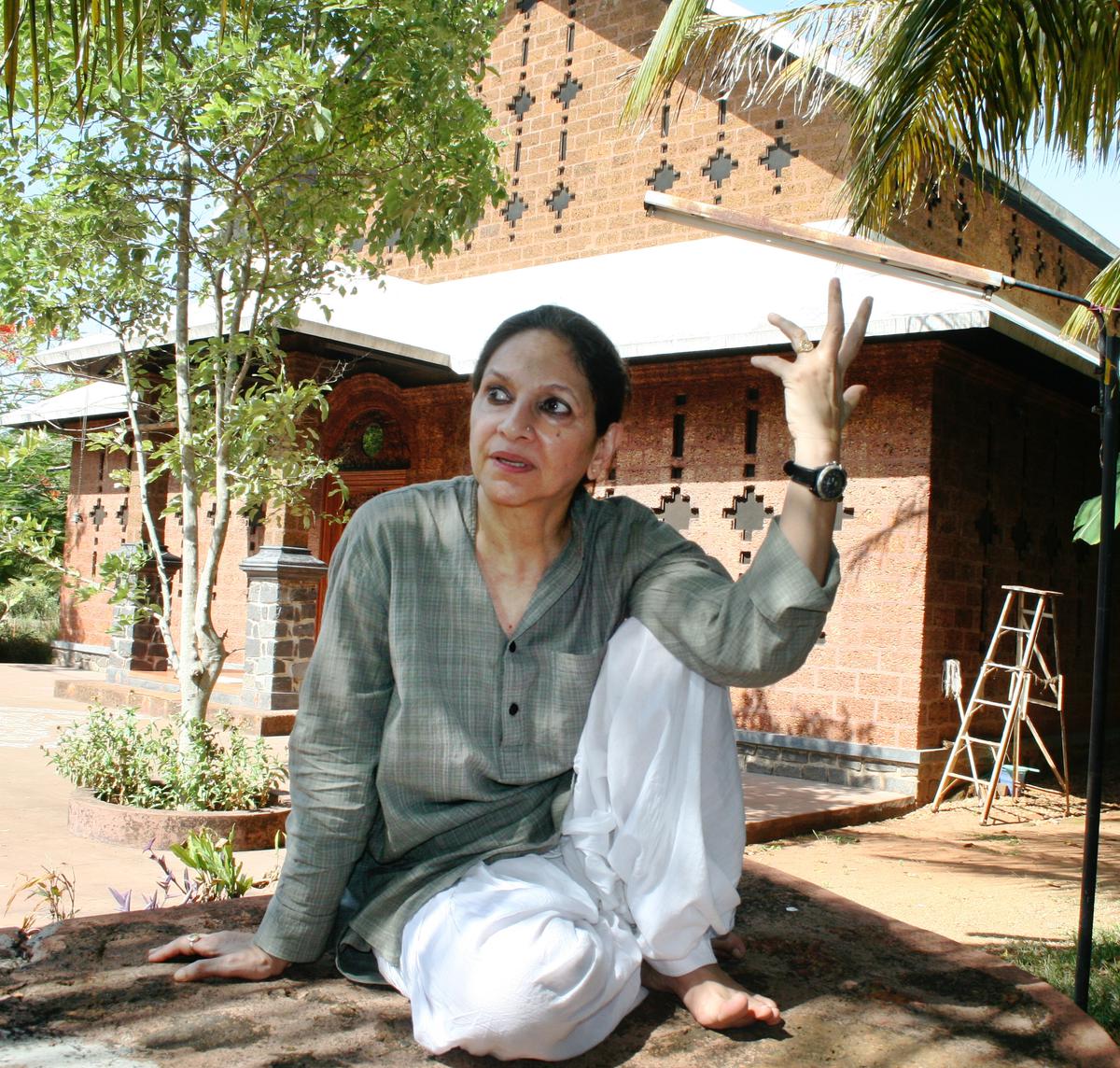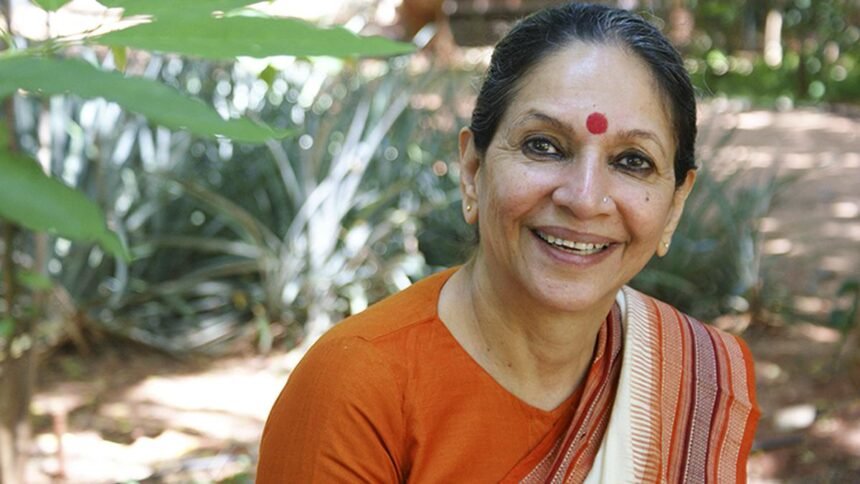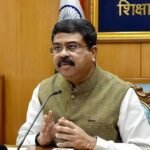Veenapani Chawla, a visionary artiste
There are many ways to remember a mentor. Keeping the land she nurtured, watered and green maybe one. Not giving up, for even a day, the rigour and detailing you were trained to value in work — another. Also, managing to draw back the people she taught, influenced and inspired. This and some more are what the core team of Adishakti Theatre Arts, Auroville, achieves every year through the Remembering Veenapani Festival (RVF).
In its 10th edition this year, the RVF will happen at the Adishakti campus in Auroville, between April 1 and 8. Held in memory of Veenapani Chawla, who centre-staged an exploration of the wholesome potential of theatre and created a performance training methodology that is much sought after, the RVF is known for presenting works that bridge the spaces between different forms of art.
This year’s RVF holds out a promise of diversity and richness. The line up includes a play in Lepcha (a Tibeto-Burman language spoken in parts of Sikkim and West Bengal) that will have live music by Sofiyum, a Sikkimese folk fusion band, to a dance-theatre production on Janabai and Lal Ded (two women who unabashedly pursued their chosen spiritual paths through poetry); a gig featuring a musician (who is also a popular actor) and his collaborator bringing alive Hindustani poetry as contemporary music to a multi-art kaleidoscopic exploration of queer love; a play that visualises a meeting between Achilles and Arjuna to one that prods our prejudices about letting ‘the other’ into our domain; a dance-theatre piece that imagines a 21st century Ashta Nayika to music in new voices.

Veenapani Chawla and Vinay Kumar in ‘A greater dawn’.
Padmavati Rao, a senior actor in theatre and cinema, is looking forward “with much excitement” to performing for the first time at Adishakti in the Hindi play Apne ghar jaisa, directed by Anmol Vellani. She plays the protagonist in the play that will examine the effects of everyday bigotry. Padmavati is certain that Veenapani, who she “went and met at a difficult point of time” in her life, would have been proud to see her creative journey bringing her to Adishakti as a performer.
Yuki Elias, a theatre-maker for over two decades, recalls her stay in Adishakti in 2006 while working as an actor in Tim Supple’s adaptation of A Midsummer Night’s Dream for the Royal Shakespeare Company. “She experienced that beautiful feeling of being a theatre-maker 24/7,” she says, adding how she finds “the craft of Adishakti’s work fascinating.” She has directed The far post,which will be part of this edition.
The play in Lepcha will be presented with English subtitles. “It will employ masks and puppetry, delve into questions on war and redemption, and be marked by fantastical characters, adventure and hope,” says Yuki, inviting the audience to witness a rare, evocative production.

Veenapani Chawla at the Adishakti campus
| Photo Credit:
SINGARAVELOU T
Vinay Kumar, artistic director, Adishakti, while speaking about the festival, affirms this sense of connection that actors, theatre-makers, musicians, dancers, students of acting and audiences feel with the space as an embrace of creative energy. He fully credits this to Veenapani’s ability to moor an emerging artiste to their unique artistic voice. “The team she initially gathered at Adishakti was from small villages with no urban education,” he says. “She shaped us in our multiple perspectives” and this, he adds, is what they tried to pass on when Adishakti became an institution, and also through the festival. It is no wonder, over the years, the festival is seeing a rise in the number of theatre groups and audiences wishing to participate. “This year’s festival is being mapped to see how more audience-members can be accommodated in the coming years,” says Vinay.
Having all facilities like guest houses, a kitchen, a state-of-the-art theatre, technological equipment and staff, they are only limited, as a self-sustaining arts space, by a flow of funds that they wish to channel towards artistes bringing their work to the festival. “This is taken care of to a great extent by the community that steps in when they open the festival’s crowd-funding campaign, but since all shows are not ticketed (in keeping with Veenapani’s ethos that theatre should be accessible to all), donations from the audience become crucial,” says Vinay.
The festival this year will include two workshops (one on nirgun and bhakti music and another on didgeridoo crafting and playing) besides ‘gupshup sessions’ that will offer an opportunity to interact with artistes participating in the festival and understand their artistic processes.









